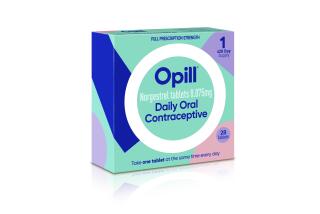New Antidepressants Emerge to Challenge Popular Prozac : Drugs: Pfizer offers Eli Lilly competition in a lucrative market.
- Share via
Eli Lilly’s widely prescribed antidepressant, Prozac, faces yet another challenge. This time, analysts say, the challenge will be competitive.
The Food and Drug Administration recently gave Pfizer Inc. the green light to sell its antidepressant drug, Zoloft. And many experts say that before the year is out, another similar medication, SmithKline Beecham’s Paxil, could be approved and enter the lucrative market for this new generation of psychiatric drugs.
So far, Prozac owns the market for these easier-to-prescribe antidepressants, a market opened with Prozac’s introduction in late 1987. Its sales have grown each year, and in 1991, sales of nearly $1 billion made Prozac Lilly’s second-biggest-selling drug.
Nearly 3.5 million patients now take Prozac, and medical and business experts say the market is still growing. Pfizer cites statistics from the National Institutes of Health that estimate 9.4 million people in the United States suffer from depression.
Zoloft--if released within the next couple of months as planned--could quickly capture $200 million to $300 million in sales this year, said Craig P. Baskin, a pharmaceutical securities analyst with Duff & Phelps in Chicago. Most experts predict that Zoloft will not directly eat into sales of Prozac, but rather absorb the growth in the market that had been expected to belong to Lilly.
And yet these drugs will not simply be squaring off against one another in the free marketplace. Prozac has been dogged for more than a year by a controversy that, despite strong refutation, just won’t go away: claims that the drug is linked to acts of suicide, homicide and other violence.
Whether Pfizer and SmithKline will benefit from consumers’ nagging fears about Prozac is hard to predict, analysts say.
The campaign against Prozac has been spearheaded by the Citizens Commission on Human Rights. The commission is an arm of the Church of Scientology, a quasi-religious organization that generally distrusts psychiatric medicine and offers its own methods and program for depression.
“Sales of Prozac would be substantially higher” were it not for the Scientologists’ campaign, said Steven Gerber, securities analyst with Bateman Eichler in Los Angeles. That means, he said, there’s a “large opportunity for competing products if they can escape the negative publicity. . . . Because consumers have been confused, the public mind is receptive to alternative drugs” to treat depression.
Sanford M. Block, executive director of the Citizens Commission, said, “We are not waiting in the wings” to launch a similar campaign against Zoloft, but added that the group doesn’t see any major differences between the Pfizer drug and Prozac.
“We had no preconceived plan” taking aim at Prozac and have formulated no strategy to oppose Zoloft, Block said, adding: “We are aware of the drug and will be monitoring it.”
Although a special panel of the FDA, after extensive testimony from Lilly, medical experts and scientists, officially rejected its claims, the group persistently blames Prozac for a variety of violent acts, including suicides and mass killings, committed by patients or former patients. The campaign, which included involvement in dozens of criminal and civil suits, has nonetheless been surprisingly successful, alarming both potential patients and their doctors and contributing to the halt in growth of the drug’s sales last year.
Prozac had quickly gained acceptance in the medical community because, unlike the earlier generation of antidepressants, dosage of Prozac is fairly easily established and it has fewer side effects.
Analysts predict that Pfizer will position Zoloft against these earlier drugs--such as Elavil--rather than directly take on Prozac and evoke the specter of the Scientology charges. Pfizer contends that Zoloft is an improvement over Prozac because it lingers in the body for fewer days once the patient has stopped taking it.
Paxil, which is now being sold in Europe but has not yet been approved by the FDA for sale in the United States, could represent an even larger challenge to Prozac, analysts said, if it proves to be more effective and have fewer side effects.
Prozac is well-enough established, said Gerber, that few doctors and their patients are expected to switch. But those wary of Prozac might take to the new products, he said. “The real question is how much that product will grow its sales. . . . (It) has withstood this nasty controversy this (past) year, but is now facing a different set of challenges, and they are primarily competitive in nature,” Gerber said.
Analysts measure their words carefully these days when discussing Prozac and the Scientologists’ campaign. The group has sued or threatened to sue numerous media outlets over stories about it and has even sued a PaineWebber analyst for comments he made about the anti-Prozac campaign in an electronic message to the firm’s brokers and clients.
More to Read
Inside the business of entertainment
The Wide Shot brings you news, analysis and insights on everything from streaming wars to production — and what it all means for the future.
You may occasionally receive promotional content from the Los Angeles Times.










